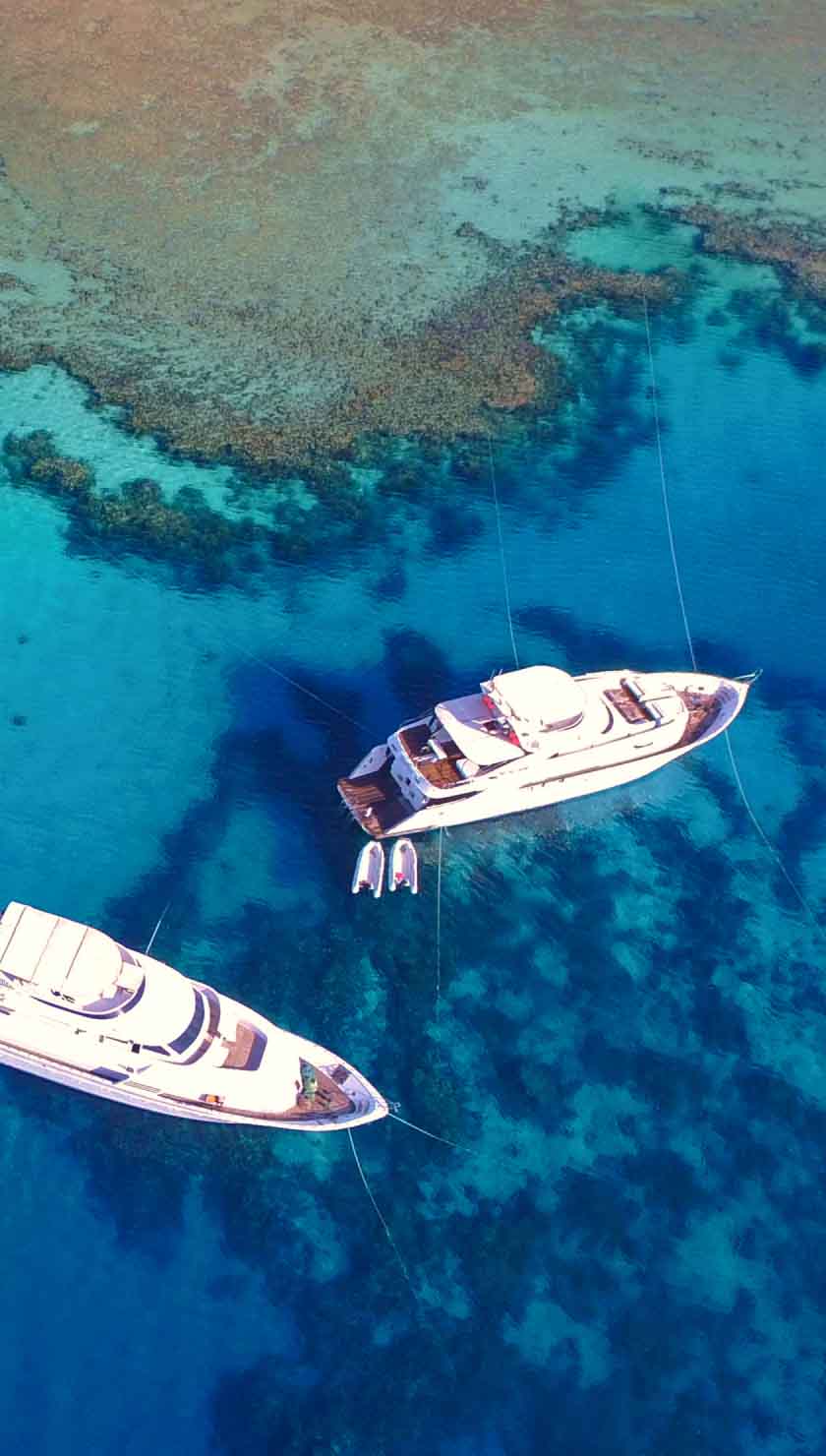Liveaboard Diving in Bohol
Liveaboard diving in Bohol is a perfect way to explore this amazing area. Bohol is a virtually circular landmass just southwest of Leyte. It is most famous for being home to tarsiers, perhaps the cutest wild animals on the planet and a few liveaboards in the Philippines add Bohol to their itineraries. These tiny primates with huge eyes cling silently to trees by day and jump wildly through the forest by night. However, for ocean enthusiasts, the draw of Bohol is its world-class coral triangle diving. Bohol liveaboard diving equals amazing fish diversity, special invertebrates, and pristine corals that characterize the best of Boholís reefs. Liveaboard boats in Bohol usually visit two particularly good destinations as part of your dive trip: Balicasag, a very small island off of Panglao Island on Boholís south coast, and Cabilao, another small island off the southwest coast of mainland Bohol. Many liveaboards also dedicate a couple days to island tours, since no one wants to miss the tarsiers or Chocolate Hills (strange geological formations that look like overturned soup bowls), and usually include waterfalls, beaches, and scenic little villages.
Bohol liveaboard destinations
No Bohol dive cruise would be complete without a trip to Balicasag, a white coral beach island studded with swaying palm trees, and absolutely encircled by incredible diving. There are at least four standard dive sites on tiny Balicasag, which is also home to a marine protected area and a local fishing community. The most well-known and oft-visited by liveaboard is Black Forest. Here, a sloping wall drops to about 40 meters, covered in live hard coral and gorgonian sea fans. As indicated by its name, Black Forest also hosts large bushes of black corals, which are often neon yellow and green (the black is found in the core of the coral skeleton). In the deeper areas swim schools of jacks, while the shallow seagrass beds at the reef flat abound in green sea turtles. Black Forest is also reputedly the site for chevron barracuda schools. Usually a mild to strong current warrants a drift dive, and one of the special treats is enjoying your safety stop in an incredible hard and soft coral garden at the reef crest.
If Black Forest is a sloping wall, Divers Heaven is a cliff; here, the reef contour is vertical, with many overhangs, and scuba diving in Bohol will hopefully include a visit here. Live hard corals abound, and fish life includes blue-water swimmers and an incredible variety of crevice-dwellers and bottom-lovers. Diversí Heaven is another drift dive, which can also end happily in the shallows with an utter universe of small, colorful fish dancing over pristine hard coral. At Balicasag Cathedral, whip corals, hard corals, soft corals, and sea fans compete for space, ornamented by magnificent light effects that bring the entire substrate to life. Turtles, triggerfish, pufferfish, and plenty of other reef life can be seen here. Balicasag Sanctuary is a deep (from 60 meters) to shallow wall that nurtures the whole island and provides a cleaning station for jacks, while at Rudy Rock, frogfishes and ghost pipefishes can be spotted whilst on your dive liveaboard.
Cabilao Island, is about two hours from the mainland by boat, departing from Danao Beach. This small island used to be famous for hammerhead sharks. While thatís no longer the case, Cabilao is still lucky in its profusion of special, sought-after creatures like the iconic pygmy seahorse. Lighthouse will probably be the dive site prioritized by your Bohol liveaboard. Here, a slope down to 20 meters ends in a plateau where photographers must keep their cameras ready for likely encounters with stargazers, crocodile snake-eels, scorpionfish, and Cabilaoís holy trinity (pygmy seahorses, ghost pipefish, and sea moths). This plateau usually experiences current and turns into a drift dive. Itís also possible to see barracuda schools, jack schools, dogtooth tuna, rainbow runners, and even a whitetip shark or two if youíre lucky.
Cambaquiz and South Point may be the next most famous Cabilao dive sites after Lighthouse. Cambaquizís wall goes all the way down to 70 meters, with a number of caves in which to discover baby sharks and night-friendly critters if youíre diving after sunset. South Point is simply great coral scenery, with high percentage of live hard and soft corals, and some enormous acropora table corals crowning the reef crest. Between around ten other dive sites, Cabilao Island offers an incredible wealth of habitats, underwater topographies, and creatures to choose from, whether itís corals, muck diving, pelagics, or drift dives that make you tick.
Itinerary details
The length of liveaboard itineraries in Bohol can be 6, 7 or 10 nights, with budgets ranging from around 280 to 450 euros per night. These liveaboards usually combine dive locations in Bohol with dive locations in other islands of the Visayas, like Cebu, Negros, Siquijor, and Southern Leyte. On liveaboard.com, itís the S/Y Philippines Siren, M/V Seadoors, and the M/V Atlantis Azores which travel to Bohol. This gives you a choice between super luxurious sailing style (Siren) and dedicated M/V diving yachts. Each enjoy different degrees of luxury, but consistently offer great diving amenities.
The experience level required by Bohol liveaboards is Open Water, with either ten or twenty dives, depending on the itinerary. Select dive sites in the Philippines definitely experience current, but the country is not as infamous for fast-moving water as the Maldives or Indonesia. Youíll depend on your dive guide to advise you of any particular challenges or experience requirements at a given site. Bohol itineraries generally include 2 - 4 dives per day.
Liveaboard departures
Cebu City, Malapascua, Moalboal, and Dumaguete are all Philippines liveaboard departure locations for Bohol liveaboards. Getting to Cebu City is easy with a 1.5 hour flight from Manila or direct flights from select Southeast Asian countries nearby. International flights can get to Cebu City via a transfer in Asia. Malapascua, on the other hand, has no airport, but it can be reached by taxi, van, or bus (and small boat). From Cebu City, getting to Malapascua requires a five hour bus journey; taxis take about half that time. Getting to Moalboal from Cebu City requires a shorter bus journey, first over the mountains to the west side of the island, and then south a bit. Getting to Dumaguete is easiest via a domestic flight from Manila or Cebu City, but it can also be reached by bus from Cebu City (at one point, the bus hops on a boat to make the passage between Cebu and Negros).
Best time to travel
Bohol can be dived all year round. The island generally gets less rain than Southern Leyte but a bit more rain than Negros and Siquijor. This keeps the landscape on the green rather than the yellow side during the summer months. We donít recommend the most typhoon-likely months of late November through January, even though typhoons usually pass north of Bohol. The water temperature ranges from 26 to 30 C.











